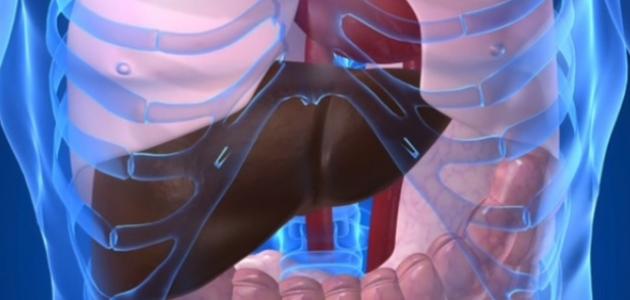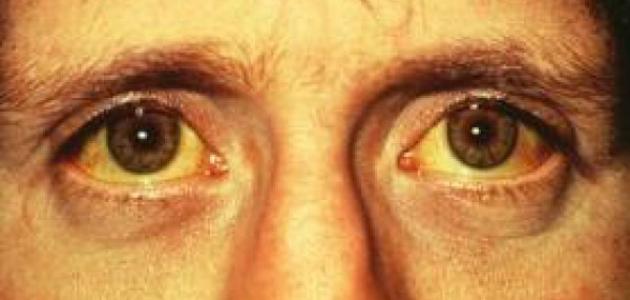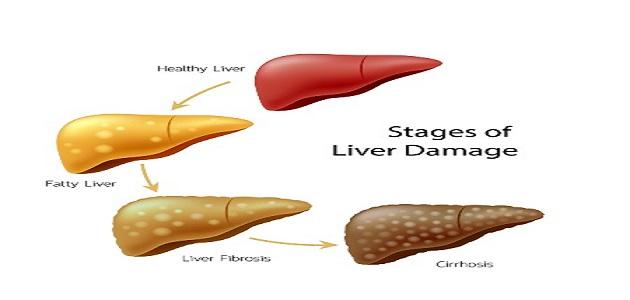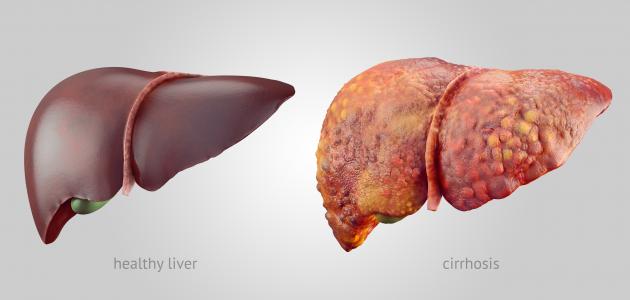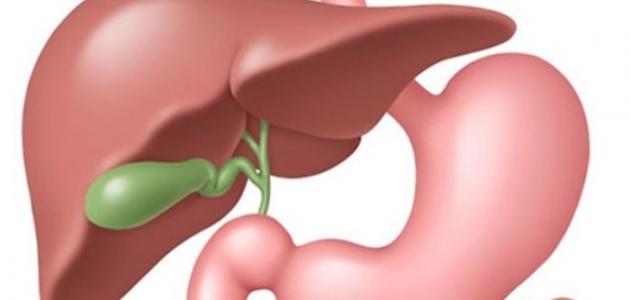Contents
Liver coma
Coma liver , or hepatic encephalopathy or coma of hepatic or encephalopathy Babi systemic, is a health problem is the decline in brain performance and function in people with severe liver disease, in other words that coma liver neurological psychiatric disorder caused by poor liver Its function is disrupted, and to better understand this, it is worth remembering that the liver is the organ responsible for removing toxins from the body and purifying them from them, and therefore the occurrence of disease or damage in the liver severely impedes it from performing its job of eliminating toxins, which causes their accumulation in the blood, and from there They travel to the brain and cause other mental and physical symptoms, [1] [2]One of the very good news is that a liver coma is one of the health problems that can be cured if you adhere to the correct treatment prescribed by a specialist, especially if the underlying cause of the condition can be removed and disposed of. [3]
To learn more about hepatic coma, you can read the following article: ( What is a hepatic coma ) .
Treating hepatic coma
Factors that depend on the treatment of hepatic coma
Determining the appropriate doctor for the appropriate treatment for hepatic coma depends on several factors, which can be summarized below: [4]
- Whether or not a trigger has triggered the condition.
- The presence or absence of some symptoms.
- The severity of the condition that the patient suffers from.
- The severity of the liver-related condition that resulted in hepatic coma.
- The age of the affected person.
- The general health of the injured.
Treating the offender
The first step in treating a coma of the liver is to identify the cause that led to its infection or the trigger that led to its emergence, and then controlling and treating the cause is sufficient to limit the progress and development of the problem, and may clearly help to treat it, for example if it was the cause of the coma The liver is infected with a certain infection; The doctor’s prescribing the appropriate antibiotic to get rid of it clearly helps to control the condition, because this infection has damaged the health of the liver and impeded its ability to perform its function, and if the cause of internal bleeding such as cases of gastrointestinal bleeding, the doctor resorted to controlling the situation by prescribing some medicines Or taking a specific medical procedure, and it is also possible that hepatic encephalopathy is caused by a blockage in the urethra, and this can be inferred by the inability of the patient to urinate normally, and in general the treatment of any disease or condition related to the urinary systemIt reduces the hepatic encephalopathy if there is a link between them, and examples of triggers for liver coma are also constipation, and then the patient is advised to eat more vegetables and fruits to facilitate bowel movement and thus help to expel toxins from the body, and finally it is indicated that there are some drugs that may be Prescribed to treat other problems, such as Narcotics or sedatives, which may be the inducer of liver coma; Then the doctor indicates the importance of stopping taking these drugs, [4] [5] In this context, it is indicated that the doctor does not prescribe treatments to control the current condition only, but also drugs or other treatment options that reduce the chance of future episodes of hepatic coma. [6]
Removing ammonia and toxins from the body
In addition to the importance of treating the cause; It is imperative to get rid of toxins that have accumulated in the body as a result of liver damage (including ammonia), and because most of these toxins begin to accumulate in the digestive system; The specialist doctor intends to prescribe drugs that primarily affect this device, [4] and the most commonly used drugs in these cases and achieve the desired purpose are lactulose and some types of antibiotics , and these drugs may be prescribed separately or in combination. Knowing also that, even after treating a hepatic coma, The doctor is concerned with prescribing treatments that reduce the chance of developing other episodes of them in the future, and the following is a detail of treatments for hepatic coma: [7] [8]
- Lactulose: The principle of its work is based on drawing water from the body into the colon, thus softening the stool and facilitating its exit from the body, which pushes toxins out of the body, thus reducing the amount of toxins absorbed from the intestine into the blood, and the scientific explanation behind this is that lactulose reduces the pH The gut and changes the composition of the microbes in it, and among the benefits of lactulose is also reducing the amount of ammonia in the body by withdrawing it from parts of the body into the colon, where it is excreted with feces outside the body, and among the benefits of lactulose as well: Control of coma episodes of the liver in general and reduce the possibility of their occurrence in the future, and a fact is taken This medicine is in the form of a syrup. As for the possible side effects, they are nausea, bloating , diarrhea, and a feeling of discomfort, in addition to the possibility of dehydration.
- Antibiotics: There are bacteria in the gut that help digest food, and these bacteria cause toxins to be secreted, and therefore giving appropriate antibiotics reduces the presence of these bacteria, thus reducing the amount of toxins that are formed in the intestine, and therefore it can be said that antibiotics reduce the severity of coma The liver and reduce the likelihood of the patient entering the hospital as well as reducing the chance of developing hepatic coma attacks in the future. [7] [8] Among the antibiotics that a specialist can prescribe to treat a coma of the liver are the following: [6] [8]
- Neomycin: It is a type of antibiotic that reduces the production of ammonia in the body, by causing it to kill the bacteria in the intestine.
- Rifaximin: , and this antibiotic is given orally, and its advantages are that it is poorly absorbed, and therefore it mainly affects the bacteria in the intestine, and thus it can do its work in the right part, and the fact that this drug is used alongside lactulose in In the event of a coma in the liver after a previous infection and the use of lactulose at that time, it is indicated that rifaximin is used in the event that the inability to use lactulose due to its side effects, as this antibiotic is often possible.
- Other antibiotics : Among the antibiotics that may be used in the treatment of liver coma as well: Quinolones , and vancomycin , and metronidazole (in Latin: Metronidazole). [9]
Other treatments
In addition to the above, the specialist may resort to other treatment options in certain cases of hepatic coma in order to control the condition, and among these options we mention the following: [9]
- Vlomazenel: , proved the effectiveness of this drug use in the control of cases of coma liver excellently in the short term in people with cirrhosis of liver , came the idea of using this medicine from the information that the zombie liver can cause the accumulation of materials Certain receptors in the brain that bind to special receptors, known as GABA receptors, which inhibit the work of the related nerves, and flumazenil affects the GABA receptors in the brain and thus shows the desired effect in many patients with hepatic encephalopathy, and it is worth knowing that This medication is given as an injection into a vein and does not last for more than a few hours. [9] [10]
- Respiratory protection: The doctor may choose to apply the medical procedure known as endotracheal intubation as a preventive measure in severe cases of hepatic coma that is subject to the entry of food or drink from the pharynx into the airway, and it is worth noting that this category of patients requires Treatment in the Intensive Care Unit. [11] [12]
- Medical tube feeding : Enteral feeding, as a medical procedure known as nasogastric intubation is used in the event that the victim is unable to swallow or if there is fear of food or drink entering the respiratory tract. The procedure is to provide the patient with fluids through this tube. [13]
- Surgery: Surgery, which means a liver transplant, since the problem of liver coma results from acute or chronic failure of the liver; Liver transplantation is an effective option in some cases, such as in cases of repeated episodes of liver coma despite the use of appropriate treatment as much as possible, or in the event that the affected person does not respond to various treatments. [8]
Advice and advice for patients with liver coma
The best advice that can be offered to patients with hepatic coma is the need to adhere to the treatment plan prescribed by the doctor, no matter how troublesome it seems (especially since these patients may have conditions that require taking medications or dealing with a medical staff for a not short time) Adherence to the treatment plan as laid down by the specialist is very important, and in this context we call on the importance of taking doses as written by the specialist and not skipping any dose without consulting him, and it is possible to seek help from family or friends to adhere to the treatment plan, and we confirm that following the doctor’s instructions and taking doses as indicated by the results are observed. clearly; Symptoms improve and disappear over time, and among other advice that is given to people with a coma of the liver: Make sure to eat food that contains an adequate amount of protein that provides the body with energy, and to ensure that the rate of excretion per day ranges between two to three times, [5] ][14] It is also advised for those suffering from a coma of the liver to be careful to distribute meals into small meals during the day and one at night, [13] and those affected by the following are also advised: [6]
- Achieving a healthy weight by ensuring that you eat healthy food and exercise regularly, and in general it is recommended to exercise at a rate of thirty minutes at a time and repeat it five times a week at least, and it is recommended that strength exercises be among the exercises practiced.
- Follow the correct way to lose weight in the event of obesity or overweight, as it is worth avoiding dieting with very low calories.
- Avoid drinking alcohol because it is processed by the liver, which harms the health of the liver and makes the situation worse.
- Refrain from smoking, as it harms the health of all the body, including the liver.
- Avoid using heavy machinery or driving vehicles, for all those who suffer from hepatic coma or are expected to have this problem. [8]
- Reviewing medications that the patient is taking with a qualified healthcare provider. Any of them may have an effect on the patient. [8]
References
- ↑ “Hepatic encephalopathy in adults: Treatment” , www.uptodate.com , Retrieved April 24, 2020. Edited.
- ↑ "Hepatic Encephalopathy" , liverfoundation.org , Retrieved April 24, 2020. Edited.
- ↑ "Hepatic Encephalopathy" , www.merckmanuals.com , Retrieved April 24, 2020. Edited.
- ^ A b t "Hepatic Encephalopathy" , Rarediseases.org , Retrieved April 25, 2020. Edited by .
- ^ A b "Hepatic Encephalopathy" , the www.webmd.com , Retrieved April 25, 2020. Edited by .
- ^ A b v "Hepatic Encephalopathy (HE)" , Britishlivertrust.org.uk , Retrieved April 25, 2020. Edited by .
- ^ A b "Treating Hepatic Encephalopathy" , Liverfoundation.org , Retrieved April 25, 2020. Edited by .
- ^ A b t w c h "Hepatic Encephalopathy" , Badgut.org , Retrieved April 25, 2020. Edited by .
- ^ A b t "Hepatic Encephalopathy" , Patient.info , Retrieved April 25, 2020. Edited by .
- ↑ “Flumazenil versus placebo or no intervention for people with cirrhosis and hepatic encephalopathy” , www.cochrane.org , Retrieved April 25, 2020. Edited.
- ↑ “Hepatic Encephalopathy” , www.clevelandclinicmeded.com , Retrieved April 25, 2020. Edited.
- ↑ "What is aspiration?" , www.medicalnewstoday.com , Retrieved April 25, 2020. Edited.
- ^ A b "Hepatic Encephalopathy In Chronic Liver Disease" , Www.aasld.org , Retrieved April 25, 2020. Edited by .
- ↑ "Hepatic Encephalopathy" , www.pat.nhs.uk , Retrieved April 25, 2020. Edited.
